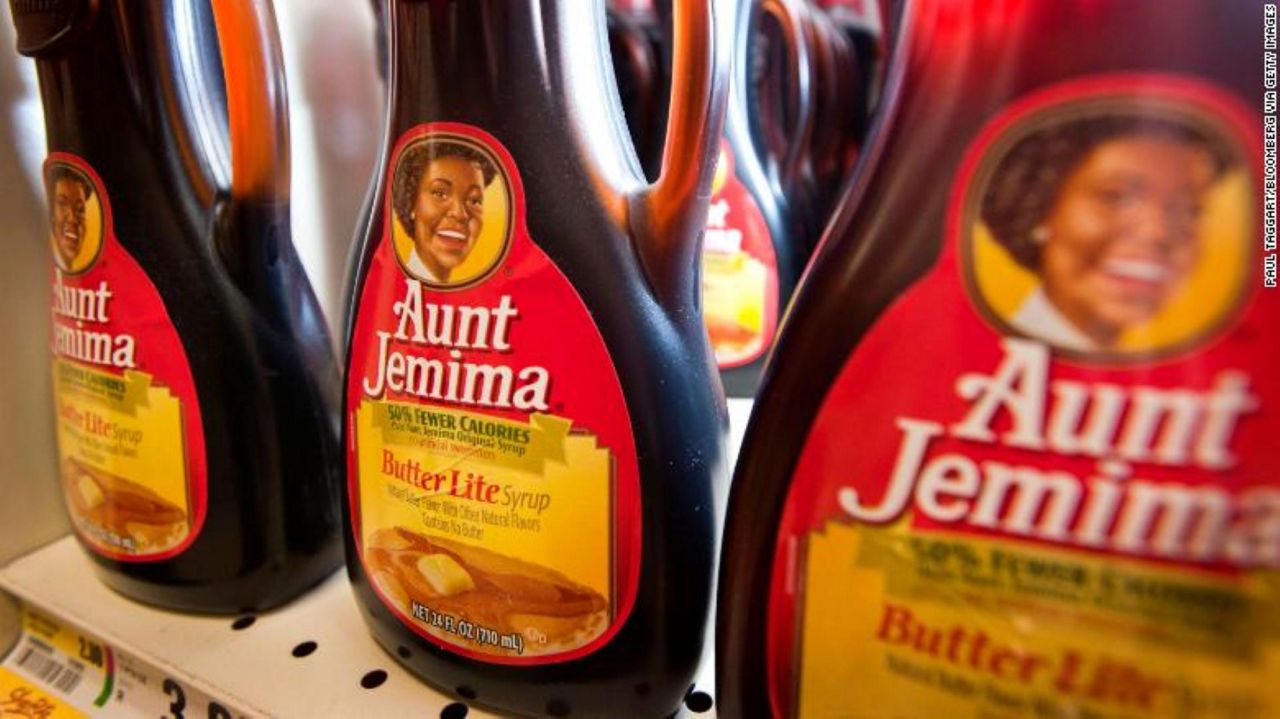NATIONWIDE — Aunt Jemima and Uncle Ben's Rice are the latest brands to undergo changes in response to growing calls to end systemic racism.
What You Need To Know
- Aunt Jemima brand, logo started in 1890, based on former slave Nancy Green
- Uncle Ben's Rice named after Texas farmer, but modeled after Chicago waiter
- Both parent companies say the time is right for the brand changes
Quaker Oats decided to retire the more than 130-year-old Aunt Jemima brand and logo, acknowledging its origins are based on a racial stereotype.
"As we work to make progress toward racial equality through several initiatives, we also must take a hard look at our portfolio of brands and ensure they reflect our values and meet our consumers' expectations," said Kristin Kroepfl, Vice President and Chief Marketing Officer, Quaker Foods North America. "We recognize Aunt Jemima's origins are based on a racial stereotype. While work has been done over the years to update the brand in a manner intended to be appropriate and respectful, we realize those changes are not enough."
The company's website said the Aunt Jemima brand got its start in 1890, based off the life of Nancy Green, who was born a slave in Montgomery County, Kentucky. She was best known as a storyteller, cook, missionary worker, and the advertising world's first living trademark, Aunt Jemima. The name came from a minstrel show song.
In 1926, Quaker Oats purchased the Aunt Jemima Mills Company. The brand and logo was first trademarked in 1937. In 2001, PepsiCo bought the Quaker Oats Company.
According to the Uncle Ben's website, the rice brand was named after a legendary Texas rice farmer. However, the man who modeled the brand's iconic photo was Frank Brown, the head waiter at the Chicago restaurant where the original co-founders came up with the idea.
Critics, however, point to the use of "uncle" as a way to address black men, regardless of age, in the Jim Crow era.
Mars Inc. said it was not sure what changes it would make to the Uncle Ben's brand yet, but it was "evaluating all possibilities."
"As we listen to the voices of consumers, especially in the Black community, and to the voices of our Associates worldwide, we recognize that now is the right time to evolve the Uncle Ben’s brand, including its visual brand identity, which we will do," read a statement on the Mars website.
Both Aunt Jemima and Uncle Ben's have made changes over the years to answer criticism about the racial stereotypes both brands evoked. Both brands changed the pictures of the characters in the logos over the years to make them more palatable to the general public.
After a nationwide reckoning on race following the death of George Floyd, more companies are making changes.
"We acknowledge the brand has not progressed enough to appropriately reflect the confidence, warmth and dignity that we would like it to stand for today," said Kroepfl. "We are starting by removing the image and changing the name. We will continue the conversation by gathering diverse perspectives from both our organization and the Black community to further evolve the brand and make it one everyone can be proud to have in their pantry."
In a statement from Quaker Oats, they said packaging changes without the Aunt Jemima image will begin to appear throughout the fourth quarter of 2020. The name change will also be announced at a later date and will quickly follow the first phase of packaging changes.
In addition to the changes on Aunt Jemima, PepsiCo said it's committed to making significant change for its people, businesses, and communities, promising to spend $400 million over the next five years to help black communities and increase representation among PepsiCo's brands.




